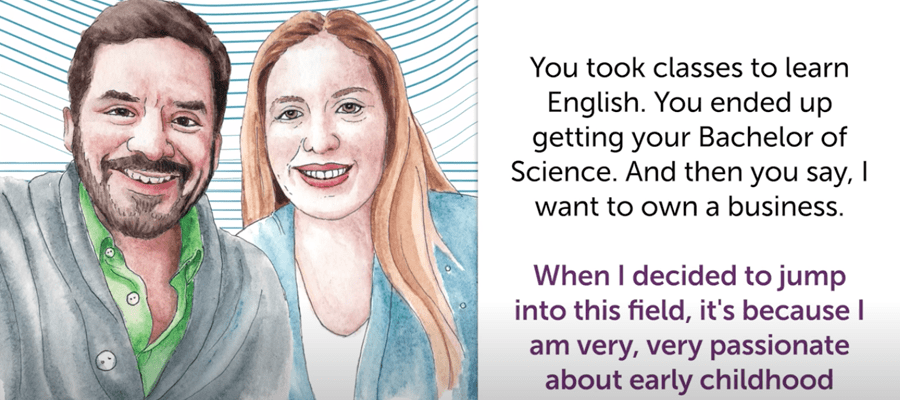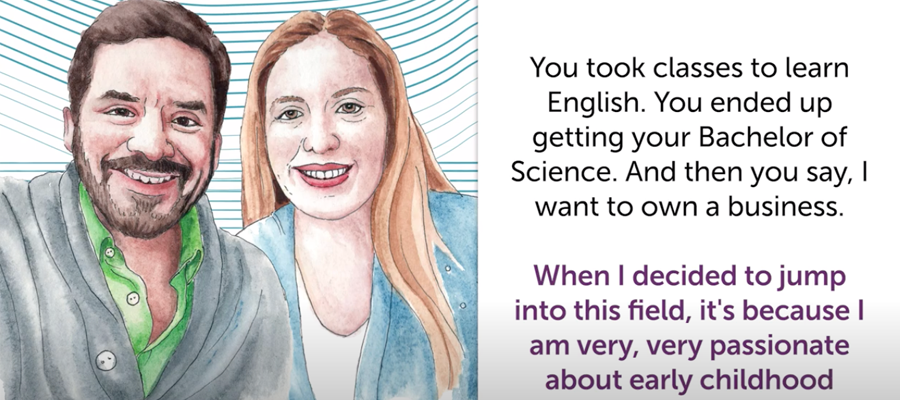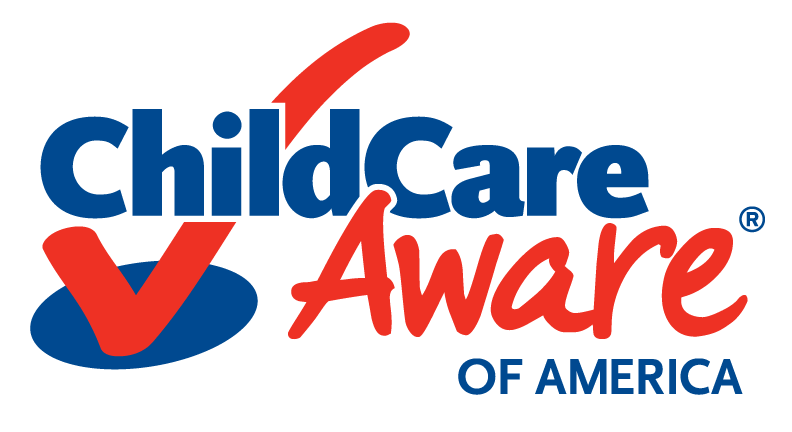

StoryCorps, a national nonprofit whose mission is to record, preserve and share the stories of Americans from all backgrounds, and Child Care Aware® of America recently partnered on a project to interview child care providers. The providers were asked about their personal journey in the child care field and the impact of COVID-19 on their work and life.
What follows is the transcript of a conversation between Carolina and Daniel Reyes, spouses who own and run a bilingual child care program in Maryland. The couple shares memories of starting their lives as a young couple in Seattle, opening a bilingual child care center, and the impact COVID-19 had on their business. Carolina is Chilean-born and has dedicated herself to making early care and education in the U.S. a respected profession, as it is in many other countries.
Carolina: I always heard my mom saying “Estudia para que ser lo que yo no pude,” meaning “Study so that you could be what I couldn’t be.” So for me, acquiring a higher degree was a goal in my life. But it was difficult. Our plans were we want to be together to create a family, but I remember saying I need to study first. Then when I was not able to go to college right away, you asked me to marry you so I could come with you here.
Daniel: So imagine going from a small family in Santiago, Chile to Seattle. That was a culture shock for you. But it was also a culture shock for me because I moved to Seattle across the country. And Seattle being dark and rainy was not easy for you, I know that. But that’s when you got your first job in the United States.
Carolina: I always wanted to work with children. When I moved to Seattle, I was fortunate enough to find a bilingual preschool that allowed me to be there. I started as the cleaning person and the director saw that I wanted to go to school, but I didn’t know how to speak English and she helped me.
Daniel: You took classes to learn English. You ended up getting your Bachelor of Science. And then you say, I want to own a business.
Carolina: When I decided to jump into this field, it’s because I am very, very passionate about early childhood education. And I thought that we can somehow change this mentality of our American society towards early childhood education. I don’t understand why in the United States we divide early childhood education in two. Everybody says the real education starts when you go to kindergarten. And it seems that the years prior to kindergarten, people don’t really take it as important. For me, early childhood education is essential because our brains start development at birth or earlier. And when we have early childhood education settings, we are able to help children in social emotional aspect, cognitive development.
Daniel: I think the problem we have in this society is that we are dependent on both parents working, which in and of itself is not a bad idea. But their children need to go somewhere so that they can thrive. Most people don’t have that extended family or grandparents, and so they need child care. If that is not made available to people where they can afford it, that leads to some serious problems. We need to have child care affordable to people.
Carolina: We have single moms and sometimes they are struggling. We have a child who has symptoms and [the] single mom needed to continue working, but we were closed to make sure that it’s not COVID. So that is when I think the government has to step in and provide us assistance. Early childhood education is essential for our society because we are the ones who are helping those children to get ready to go to kindergarten. I see us as being part of a root of a tree of early start of education.
The StoryCorps/CCAoA project was made possible with support from the Robert Wood Johnson Foundation.
{{cta(‘863826d4-3c8c-4d16-a751-8984e65862b4’)}}


